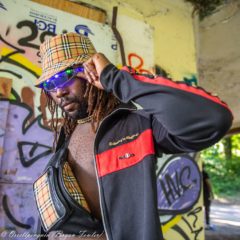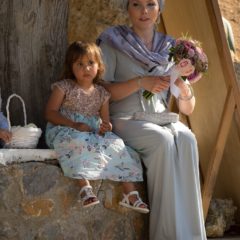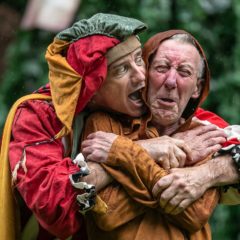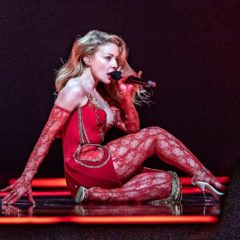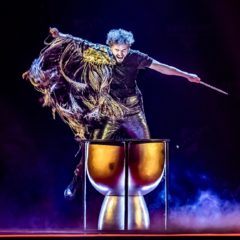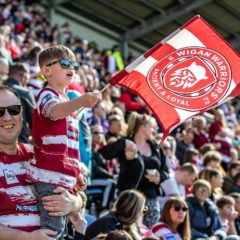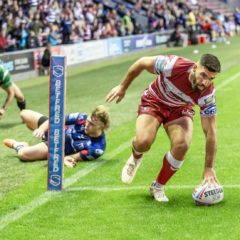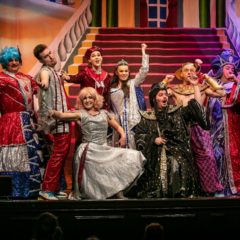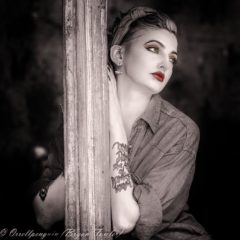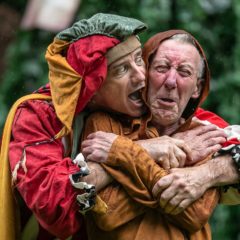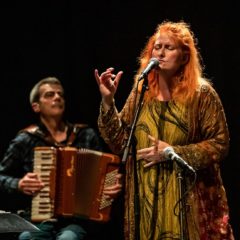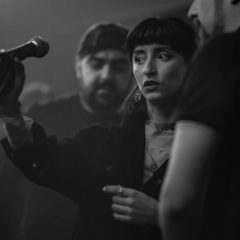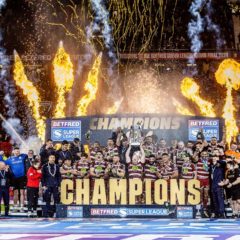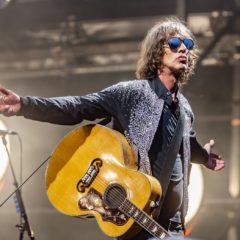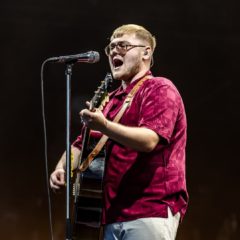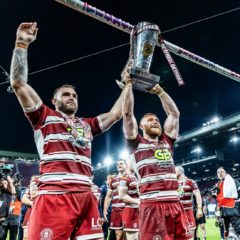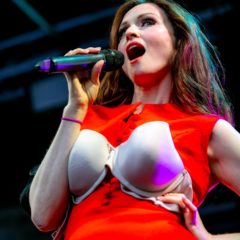- Account
- Basket
- Box Office:0343 2086015
Photographing live events: Bryan Fowler
Bryan Fowler regularly photographs events at The Old Courts and beyond. We wanted to ask him about his experience as a photographer, preferred techniques and how he deals with challenging environments.
What inspired you to start studying photography?
My interest in photography began a very long time ago. Like many people in the 1970s my dad had a 126-film camera which would only appear for special family events and holidays and I always wanted to get my hands on it. A little later at college I found that taking photographs was a convenient way of capturing ideas for my A level Art projects, which somewhat conveniently allowed me to pop to the pub for an hour while waiting for the film to be developed at Wildings or Max Spielman’s.
I started to take photography more seriously when my two sons began playing rugby over twenty years ago. While it’s possible to photograph holidays, music and architecture with almost any camera and lens, shooting sport is altogether different as it is one of the few branches of photography where the equipment used really does make a noticeable difference to the end result, and that equipment comes at a cost.
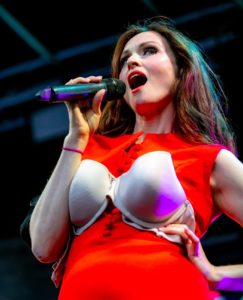
Sophie Ellis-Bextor, Liverpool
Around the same time a couple of us started running a social photography group in Liverpool which organised regular photo-walks around the North West. The group proved to be very popular and arranging events has also helped me to make some useful connections and at the same time searching for ideas for themes for photo-walks also encouraged me to research the many different branches of photography. More recently I decided to combine my hobby with studying for a BA(Hons) in Photography. This course means that I am constantly on the lookout for new photographic opportunities as well as interesting subject matter for both my portfolio and a future exhibition.
What kind of events do you enjoy shooting?
These days I probably spend 70% of my time covering rugby league, rugby union and football, but I do enjoy photographing big events, and the more interesting and challenging they are the better. I do seem to have become something of a specialist in covering local events including theatre shows, awards ceremonies, brand launches, dance and music shows as well as major parades, protests and festivals.
Where possible I also try to support local organisations, charities and CICs by covering events for them.
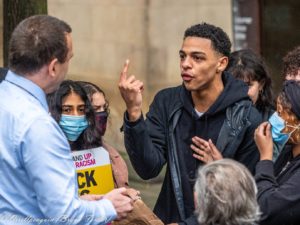
Black Lives Matter Protest, Manchester Town Hal
I have just written my first music review for ‘The Lottery Winners’ performance at the O2 Academy in Liverpool. All I can say is that, I much prefer taking photographs to writing.
There is a plus side to this role as, one of the hidden advantages of photographing sport and shows is that, it often allows the photographer the best front-row seat that most fans would be envious of.

Super League Grand Final, 2024
What’s the biggest challenge when shooting live events?
Every event brings its own surprises which means that the biggest challenge is always the one that you weren’t prepared for. While experience, good planning and preparation can help to mitigate problems there is always the risk of something unlikely happening. Event photography can be risky and I have been threatened while covering a church parade, had to fight through crowds in mosh pits, seen cameras and lenses smashed by footballs hitting them, been at events when equipment has been stolen, spoken to a student who left a £2000 lens on a train and know a photographer who was mugged heading back for his train.
However, for most event photography, the biggest recurring problem is nothing so dramatic, it is simply knowing the right people to contact in order to gain access to the event. It is always worth taking every opportunity to network with key players and to make yourself known by chatting to the organisation’s media team, visiting the band’s merchandise stall after the show, talking to the venue’s management and the event’s promoter or tour manager.
Then there are the other rules that restrict what you can do. In the case of capturing live music performances, this often means being limited to only photographing the first three songs by each performer. Some bands may also have other more specific restrictions which make capturing the perfect shot difficult. For example, some better-known performers do not allow photographers to stand directly in front of them while they sing, you could also be working in a small space with a dozen other photographers, other acts will have a major clothing reveal or lighting change (which usually happens after the third song), and some performer’s contractual terms and conditions can stipulate somewhat onerous clauses which give them the right to preview and veto the use of any of the images taken during the show.
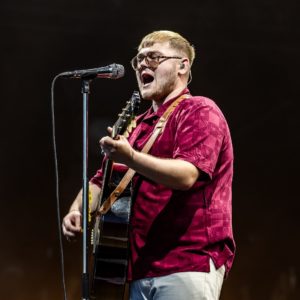
The Lathums, Robin Park
In a similar way professional level sports photography brings its own unique challenges. It is normally quite east to access the smaller community sides, but professional sports are often controlled by agencies (like DataCorp) or governing bodies (like the RFL or RFU) this makes it difficult for aspiring photographers to gain access to higher level games. Working for photographic agencies is probably the easiest way of gaining access to these events but they often insist on certain minimal standards of high-end equipment, as well as specific software, together with an ability to deliver images in real time and there is a lot of pressure on attending fixtures. Then there are additional costs associated with gaining access, such as software licences, DBS clearance and public liability insurance cover.
On the technical side the light and, if you are outdoors, vagaries of the British weather create other challenges for event photographers. While light is a photographer’s best friend it can also be his worst enemy, so my least favourite venues tend to be badly lit sports halls along with small, dark, cramped music venues. Photographing new upcoming bands, often in small crowded bars is amongst the most challenging environments to work in. There is often little space to move around in, the LED lighting is frequently monochromatic and changes colour frequently, the acts are sometimes obscured by an overzealous use of the smoke machine and, if you are really unlucky, the LED lighting will flicker requiring the use of slow shutter speeds. However, these same venues can also produce some of the best results.
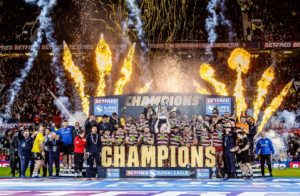
SuperLeague Grand Final, 2024
How do you deal with low-light situations in a venue like The Old Courts?
I wouldn’t do yourself down as I’ve shot in far more challenging venues than the Bailiff Bar and Holding Cell. To be honest a lot depends on the performer and their management and what you are trying to achieve. Using flash is the most effective and controllable way of making the scene brighter and overpowering any problems caused by the stage lighting.
Unfortunately, for the vast majority of music and theatre performances that I cover, flash is rarely an option. In this case I just have a little grumble to myself and push the camera settings as far as possible to capture the best photographs that I am able to. I then end up spending more time than I probably should either adjusting the colour profiles or converting the photographs to B&W to hide uncorrectable colour casts while trying to retain the atmosphere of the event.
Do you have any post-processing techniques or software you prefer?
Most of my work is high-volume so I use Adobe Lightroom for over 95% of my grading and initial edits and only turn to Photoshop for specific shoots like weddings and for more complex procedures like compositing (combining parts of photographs), subject replacement and beauty edits.
I mainly document events in what could be best described as a Pictorialist style, so the majority of my work relies on capturing a well composed and technically correct image in camera. Unless I have a specific client brief, I will then edit the photographs in a sympathetic way that suits the subject and event. For example, the soulful look and feel of photographs taken in an intimate jazz venue would differ greatly from the energy and movement that I would be trying to capture for a punk or rock band interacting with their fans.
The only area that I would say that this differs for is with sport action shots that are going to be sent to publications as there are a lot of legal restrictions regarding what is acceptable, so it is usually best to keep these edits to a minimal crop and colour tweak.
Have you had any memorable moments or favourite shots from events you’ve covered?
I love photographing the way that audiences interact with an event as the emotions on display are so real and in the moment. I always take photos of fans at sporting events, enthusiastic crowds in the front rows of music festivals and love family celebrations like weddings and christenings.
My favourite photographs are probably the photographs of the drummer taken at the Eurovision Song contest and Sophie Ellis-Bextor’s reaction to having a fan’s bra thrown on stage at Liverpool Pride.
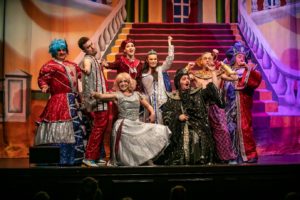
Aladdin, The Old Courts
If you could shoot any event, anywhere, what would be your dream gig?
I am very fortunate to have shot major sporting events, including international Rugby League and Rugby Union and was incredibly lucky to be selected from thousands of applicants to be one of only 35 photographers to cover the Eurovision song contest in Liverpool. Eurovision was an eye-opening experience and being able to spend a week watching all of the rehearsals and behind the scenes work that goes into such a spectacle and then sitting in the media room enjoying the corporate hospitality, while learning about the lifestyle of the agency photographers working for major international organisations like News Corp, Reuters and Getty is something that I probably will never experience again. Many photographers aspire to the prestige of working for a major agency, but the reality is that most of these photographers had not seen their families for weeks as they had been covering the Royal Coronation a few days earlier, were in Liverpool for Eurovision week and then off to Aberdeen for a BBC music festival straight afterwards.
If I had to choose one subject that I would love to photograph then it would probably be the colour and spectacle associated with major theatre productions, especially the national tours of some of the big name musicals. Covering these is still on my ‘to do’ list and something I am working on.
What would you say to people thinking about taking up photography?
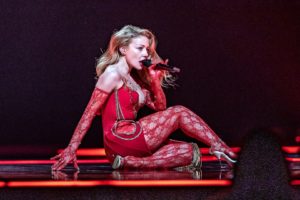
Eurovision Song Contest
For people thinking about photography as a hobby then I would say that if you stick with it is great motivator to go out with your camera and meet-up with other like-minded souls. If the social side appeals there are some very good photography clubs in the area as well as a few evening classes out there, should you need a little advice and support. Modern digital equipment makes life so much easier for newcomer, the only downside is that it can be expensive.
The situation is very different if you are hoping to earn your living in the industry. I would suggest that you need to really understand the market place before going down this route as there are so many willing and able amateurs out there who will happily work for free or at minimal cost, as well as a very talented and well-established group of professionals.
These days the situation is made all of the more difficult because many organisations and potential clients are struggling financially and the photographic industry is in a state of flux due to a loss of paid opportunities, competition from videographers and content creators as well as AI generated images impacting on the marketing and product shoot sectors.
It is difficult but important to think about something that you want to do and may be passionate about as a business first and foremost, so having a professional marketing strategy, establishing useful contacts, understanding what work is out there, compiling a robust business plan as well as having enough capital or backing to support your business through any lean times are probably as important as your photographic skills. Marketing is very important if you are looking to establish a business and I do have a portfolio of work which I share with potential clients. However, and this may sound a little counterproductive, but as I am quite busy and so rarely update Facebook and do not use social media platforms to advertise my photography work. These days I am more interested in covering projects which are; different, will make a difference to someone, challenge me creatively and which I can use for my degree (like promo shoots for an upcoming band).
If anyone reading this has any ideas for collaborations then feel free to drop me an email at Orrellpenguin@Gmail.Com

